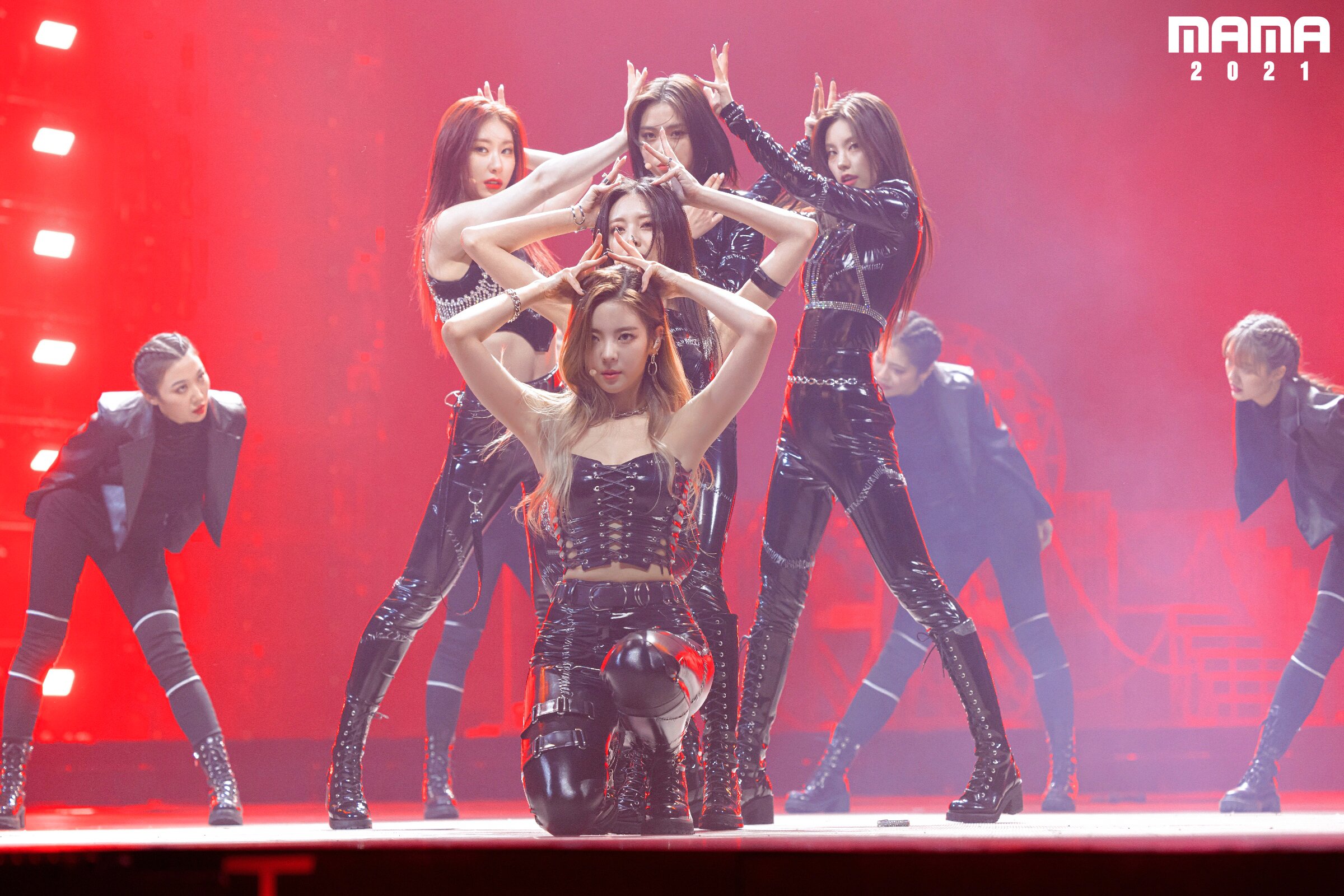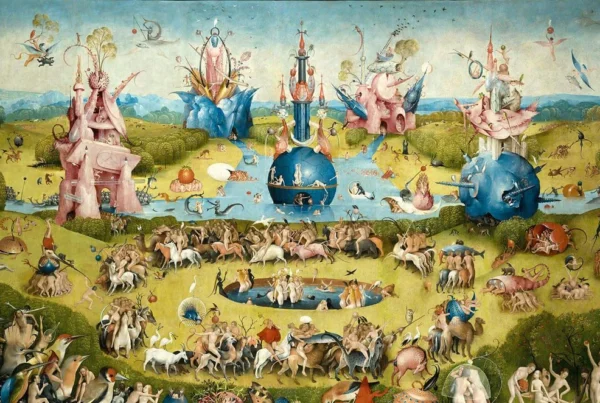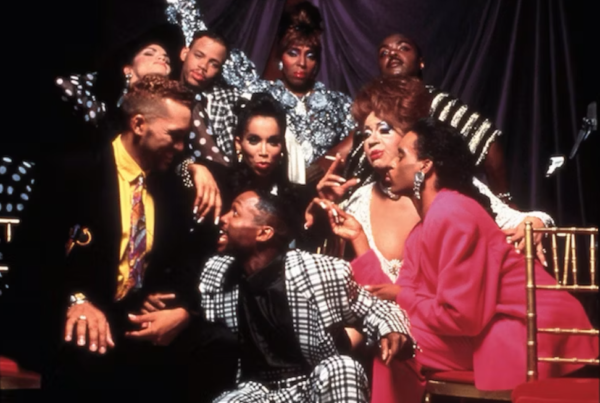From the author: This article features mentions of eating disorders, abuse, and death.
South Korean culture has taken over the world like a wave — hence the name Hallyu, translated as “the Korean wave”. Increasingly popular K-pop music is not only a source of entertainment, but also a weapon of soft power that has helped the country build its identity. K-pop emerged in the 1990s, but only gained popularity in the West in the 2010s, largely due to streaming platforms and social media. It is known for its catchy instrumentals, perfectly synced choreographies, as well as highly produced music videos. However, what lies behind this facade are exhausted young artists that would just like to pursue their passions while being treated more like humans.
While I do enjoy listening to my favorite K-pop groups, sometimes I cannot help but wonder, “What do these incredibly talented people have to sacrifice to live their idol life?”. These young artists can do anything: sing, dance, model, choose the best outfit and makeup, create engaging social media content, encourage social action and whatnot — but what they are going through to acquire these skills and maintain a good reputation is beyond imagination. It really makes one reflect and reconsider whether listening to K-pop is right.
Slave contracts
Before even having the chance to debut on the K-pop scene, artists have to go through strict training that can last up to ten years. Some do not even make it in the industry — it is all up to the big entertainment companies that manage these artists, and oftentimes it is a matter of luck (or looks) rather than pure talent. Also, if you thought having three or four lectures in a single day was exhausting, wait until you see the schedule of a K-pop trainee. They start at very young ages and take singing classes, dance lessons, acting workshops, media training and so on. On top of that, they also have to go to school like normal children of their age. The youngest members in groups like New Jeans, which debuted in 2022, were around 13-14 years old when they entered the industry, which probably means they started training during early childhood and could not enjoy normal things we enjoy as kids.
On top of this, while it is true that you are offered accommodation, food, and valuable classes to pursue your passion, you are also left in a lot of debt. If you cannot make it as an artist, you are supposed to pay the company back for their “wasted” time and resources; and even if you debut, a big part of your salary will go to the company in the first few years, to pay off the training.
All the hard work can take a toll on idols’ physical health, with many videos of artists collapsing on stage or looking extremely exhausted circulating online serving as evidence. For example, the members of boy group Omega X had to perform after they tested positive for COVID-19. Not to mention the stress and impact on mental health overall, which has often forced idols to take months-long breaks from work to recover from severe anxiety symptoms.
K-pop idols also have to fit into the strict Korean beauty standards, which sometimes involves having plastic surgery or even undertaking extreme diets to lose weight in a short amount of time. As a trainee, if you did not reach the weight goal, you would be either in big trouble or straight out of the company. Momo from girl group TWICE once had to eat only one ice cube per day to lose 7 kg in a week, and EXO’S Xiumin once drank large amounts of coffee and only had one meal per day.
And yet, even if you starved all day, stayed up late for work to shoot a music video, and haven’t slept for more than 24 hours, you still have to look smiley and perfect on camera.
Do companies try to protect their artists’ well-being in such contexts? Sometimes, but more often than not they only care about selling their music to make more money. Some idols work very hard and give their lives for their careers, but are not treated (or paid) accordingly. Chuu from former girl group Loona sued her company Blockberry Creative in 2022 for receiving little remuneration for excessive work, which then led to her exclusion from the group. In the meantime, the group has disbanded, after nine other members also tried to terminate their contracts and file lawsuits. “Even when a member had to call an ambulance alone, barefoot, due to pain, and even when we fainted, there was nobody to protect us. We had to carry the members on our back to the emergency room”, stated the members of another girl group, FIFTY FIFTY, which became popular on TikTok with their song “Cupid” last year. Some members received medical advice to eat healthy due to kidney failure and other stomach problems, but their company insisted that they remain on a diet. Four out of the five girls have now left the group.
Fans taking it too far
Fans are a significant element contributing to the success of K-pop groups. As a celebrity, you would probably enjoy the attention and praise from fans — and you do indulge in a whole lot of that in the K-pop industry. But fans sometimes go over the limit. How would you react if a so-called “fan” was right outside your window? Or if they sent you death threats simply for dating someone and not staying single? You are immediately accused of “betraying” your fans, just because they secretly dream of genuinely marrying you one day and you must stay emotionally available. These are called “sasaengs”, those who would follow idols to their homes, spread false and harmful rumors about them, and engage in online harassment. Many idols were put in uncomfortable situations like this. Nayeon from TWICE, for example, was constantly stalked by a German man known as Josh, who managed to get on the same plane as her from Japan to South Korea in December 2019. Although the bodyguards prevented him from having any direct contact with Nayeon and the idol was put under police protection, she was left uncomfortable and anxious. Just recently, THE BOYZ’s Sunwoo was assaulted by a sasaeng, who was waiting for him after work in the emergency staircase of his apartment complex. The police then found a tracking device on Sunwoo’s vehicle.
Or imagine being canceled for something you did not do, or something that you did but was not necessarily wrong. And then you must issue a public apology too, otherwise you will receive constant death threats. This happened when aespa’s Karina made her relationship with actor Lee Jae-wook public, an announcement which was followed by angry fans sending trucks to her company with messages like “Why did you choose to betray your fans?” and asking her to apologize —which she eventually did, and even broke up with the actor.
Thankfully, most idols get through these difficulties to pursue their dreams, and many have even started speaking up about their difficulties — just listen to Huh Yunjin’s “I ≠ DOLL”. There are a few, however, that reach such a low point in their lives that they cannot stand living in this nightmare of an industry anymore. One such case was the 25-year-old Sulli, who decided to break the K-pop industry standards by making her relationship public, as well as speaking about her mental health online. Because of this, she was cyberbullied so harshly that she eventually resorted to taking her life in 2019.
Sometimes I cannot help but wonder why I keep supporting, both financially and emotionally, such an industry that has proven itself destructive to artist’s health and individuality, turning them into perfectly programmed entertainment machines. Should we be ashamed of this? Perhaps K-pop fans should unite and boycott such practices. Yet, it is a matter of what we value more: an ethical work environment or the euphoria of a good song? I think that putting a full stop on K-pop music would be perceived by the idols as a sign of giving up on them, which would discourage them even more from doing what they love. However, if we continue to show them support while speaking up about the problems, I believe we could make a change.
Other posts that may interest you:
Discover more from The Sundial Press
Subscribe to get the latest posts sent to your email.





